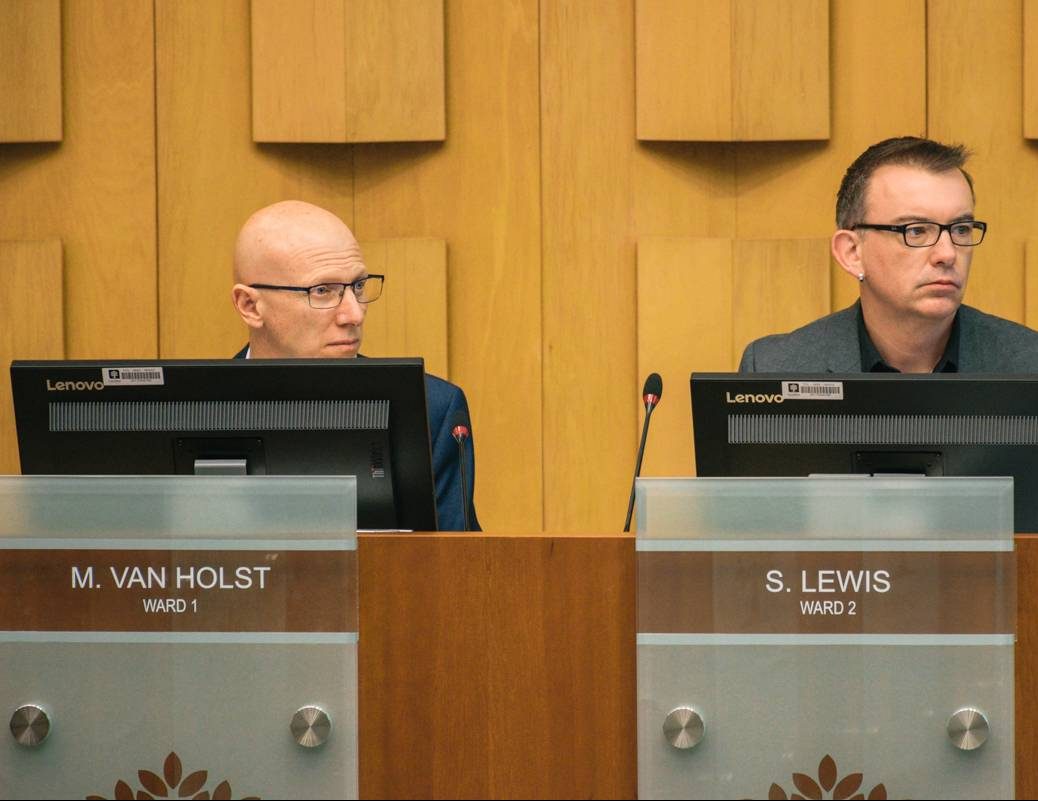London Ward 1 Coun. Michael van Holst is receiving backlash for a Facebook post going against current medical advice on how to tackle the coronavirus pandemic.

The post cites comments made by a California urgent care doctor saying “the secondary effects of isolation are significantly more detrimental to society than a virus.”
“The conclusion of the doctors in this video are (“emphatically”) that we should stop sheltering in place and get all businesses back to work,” the post read.
Mayor Ed Holder condemned the post, advising Londoners to listen to the advice of local medical professionals.
“I have a lot more confidence in London’s chief medical officer of health, the chief medical officer of health in Ontario, and the chief medical officer of health in Canada than folks who do not live in this country,” Holder said.
Although health officials have said Ontario has now passed the peak when it comes to new cases, Dr. Chris Mackie, the health unit’s CEO and medical officer of health for London and Middlesex, warns against thinking it’s safe to go back to normal.
“We have other countries in the world that have chosen the approach of leaving their economies opening and trying to shelter those at higher risk, and the results are devastating.”
Mackie used the example of Sweden, which has opted to leave its economy open, saying Sweden’s mortality rate is four times Canada’s.
All non-essential businesses in Ontario were ordered to close by March 24 to slow the spread of the coronavirus that causes COVID-19.
As of Sunday in the Middlesex London region, there were a total of 372 total cases with 31 deaths and 190 cases now resolved. At least half of the deaths in the region are connected to long-term care and retirement homes.
Van Holst told Global News the quotes from the California doctor were to support his statement that “recent widespread testing created a different picture of the coronavirus than the earlier theoretical models.”

“I am watching this situation evolve like everyone else who has been staying at home for weeks,” he said.
Van Holst’s weekend Facebook post also quotes the California doctor as saying that “there is no science behind closing small businesses right now” and “quarantine the sick is what we should do, not quarantine the healthy.”
Health officials have urged people to avoid large gatherings and to keep six feet apart at all times because the virus can spread through close contact.
Experts say people be asymptomatic for at least two weeks — or show no symptoms at all — and not know they are spreading the virus.
“It’s just impossible to isolate only those that are at high risk,” Mackie said. “School-aged children are at a very low rate of dying but are very efficient at spreading infectious diseases, and then you will see it rip through your community.”
On Monday, Premier Doug Ford announced the framework for how the province would reopen for work but did not specify when the economy would start to reopen or how long it would take.
“If precautions are not taken, one person can spread it to hundreds of others,” Ford said.
Questions about COVID-19? Here are some things you need to know:
Health officials caution against all international travel. Returning travellers are legally obligated to self-isolate for 14 days, beginning March 26, in case they develop symptoms and to prevent spreading the virus to others. Some provinces and territories have also implemented additional recommendations or enforcement measures to ensure those returning to the area self-isolate.
Symptoms can include fever, cough and difficulty breathing — very similar to a cold or flu. Some people can develop a more severe illness. People most at risk of this include older adults and people with severe chronic medical conditions like heart, lung or kidney disease. If you develop symptoms, contact public health authorities.
To prevent the virus from spreading, experts recommend frequent handwashing and coughing into your sleeve. They also recommend minimizing contact with others, staying home as much as possible and maintaining a distance of two metres from other people if you go out.
For full COVID-19 coverage from Global News, click here.










Comments